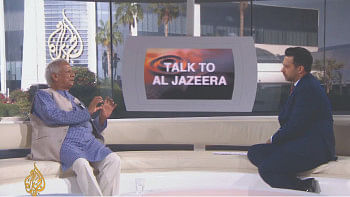Madrasa education
Education and learning are of paramount importance in Islam. The very first word of the Holy Qur'an revealed to the Holy Prophet (Pbuh) is 'Iqra' which literally means 'read' in Arabic, and unlike other holy books, about half of the Holy Qur'an narrates about nature, space, weather, geography, biology etc. which are 'non-religious' subjects. Similarly, the Holy Prophet (Pbuh) asked his followers to even 'go to China' to acquire knowledge and during the Prophet's lifetime a war captive was freed if he could educate at least ten Muslims. Many such examples indicate the importance of 'secular' education in Islam. There was no (concept of present day) madrasa ( meaning 'school' in Arabic) during the times of Holy Prophet (Pbuh) and the Caliphs (Ra) and mosques were the centre of social and religious activities. Early madrasas were founded in around 10th century in Iran, West Africa, Spain and then spread all over the Muslim world to provide Islamic education as well as education on science, philosophy, public administration, governance etc. Later, the Ottoman rulers constructed a mosque with an adjoining madrasa but did not change much of the primitive madrasa education system and syllabus.
In response to the British rule in India (and European colonization of the world) and the introduction of British modern educational system and establishment of government Alia Madrasas, traditional south Asian Sunni Madrasas became anti-west, orthodox, withdrawn and radical though not militant. Bangladeshi non-Alia madrasas - divided into many factions - were their legacies until the '80s. Outdated and poor quality education are the features of this system.
Noticeable changes of Bangladeshi madrasas occurred after the Soviet invasion of Afghanistan. For the recruitment of anti-soviet mujahideen, all verities of Pakistani madrasas adopted a militant course and curriculum - carefully prepared by a Pakistani intelligence agency and funded by the USA, West and Sheikhdoms. The Pakistan army under President Zia-ul-Haq very successfully used all the ulema organisations, religious political parties and madrasas for its own political agenda. Around that time many Bangladeshi non-government madrasas adopted textbooks and books written by Pakistani 'religious authors'.
To meet the challenges of 21st century and to follow real Islam, modernisation and integration of madrasa education system with the modern education system is necessary, so that students of all the mediums (madrasa, general and English) up to a level could study some common subjects. However, mere introduction of subjects like communication technology, computer, Bangladesh studies, environment or vocational training in the madrasa courses will not make a big difference. Poverty, unemployment, vested political influence, sources of funding etc should be taken into account.

 For all latest news, follow The Daily Star's Google News channel.
For all latest news, follow The Daily Star's Google News channel. 



Comments